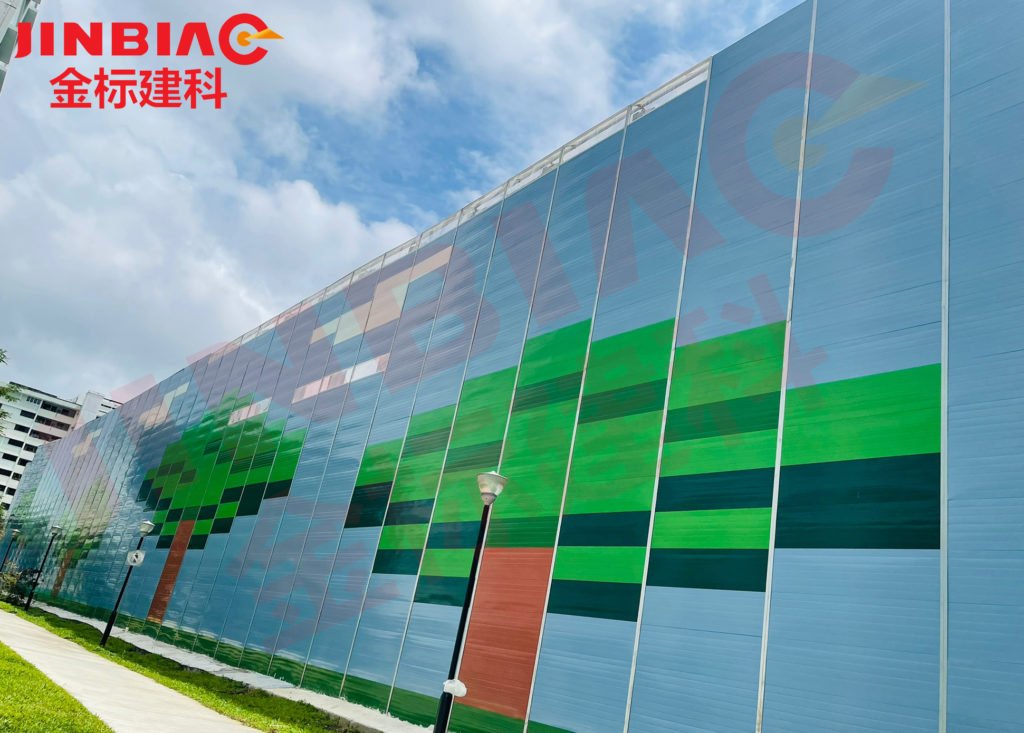
Mixed-use spaces have become increasingly popular in recent years, with developers and city planners recognizing the benefits of combining residential, commercial, and recreational spaces in a single area. However, these spaces can also present challenges, particularly when it comes to managing noise levels. Without proper sound barriers, mixed-use spaces can quickly become loud and disruptive, negatively impacting the quality of life for those who live and work in the area.
One of the main reasons that mixed-use spaces need sound barriers is to ensure that noise from one area does not disturb those in another. For example, residents living above a busy restaurant or bar may be disturbed by the noise of patrons late into the night. Similarly, office workers may struggle to concentrate if they are located next to a loud gym or fitness studio. By installing sound barriers, developers can help to mitigate these issues and create a more peaceful and harmonious environment for everyone.
Another reason why sound barriers are essential in mixed-use spaces is to comply with local noise regulations. In many areas, there are strict rules in place governing acceptable noise levels, particularly during certain times of the day or night. Failure to comply with these regulations can result in fines and other penalties, as well as damage to the reputation of the development. By investing in sound barriers, developers can ensure that their mixed-use spaces meet all necessary regulations and provide a safe and comfortable environment for residents, workers, and visitors alike.
Understanding Mixed-Use Spaces
Defining Mixed-Use Spaces
Mixed-use spaces refer to buildings or areas that combine two or more different types of uses, such as residential, commercial, and industrial. These spaces are becoming increasingly popular in urban areas, where space is limited, and developers are looking to maximise the use of land. Mixed-use spaces can take many forms, from high-rise buildings with apartments, offices, and shops to suburban areas with homes, schools, and parks.
Benefits of Mixed-Use Spaces
There are several benefits to mixed-use spaces. Firstly, they can help to create vibrant, diverse communities, where people can live, work, and play in the same area. This can lead to a stronger sense of community and a better quality of life for residents. Mixed-use spaces can also be more efficient, as they reduce the need for people to travel long distances to get to work or other amenities.
Another benefit of mixed-use spaces is that they can be financially sustainable. By combining different uses, developers can create a more diverse revenue stream, which can help to reduce the risk of financial loss. Additionally, mixed-use spaces can be more environmentally sustainable, as they can reduce the need for cars and promote more sustainable modes of transport, such as walking, cycling, and public transport.
However, one of the challenges of mixed-use spaces is managing the different types of uses and activities in the same area. For example, noise from commercial activities, such as bars and restaurants, can disturb residents living in nearby apartments. This is where sound barriers can play an important role in creating a more harmonious and enjoyable environment for everyone.
Importance of Sound Barriers in Mixed-Use Spaces
Mixed-use spaces are becoming increasingly popular in urban environments. These spaces often combine residential, commercial, and industrial uses in a single building or complex. While this approach offers many benefits, it also presents unique challenges, particularly when it comes to managing noise levels.
Noise Control
One of the most significant challenges of mixed-use spaces is controlling noise levels. With multiple uses in a single building, it can be challenging to prevent noise from one area from disturbing those in another. Sound barriers are essential in mixed-use spaces to prevent noise from travelling between different areas of the building.
Privacy and Comfort
In addition to controlling noise levels, sound barriers also help to improve privacy and comfort in mixed-use spaces. For example, sound barriers can be used to prevent noise from commercial areas from disturbing residents in a residential area. They can also be used to create private spaces within a larger area, such as a sound barrier between a gym and a shared workspace.
Enhanced Property Value
Finally, sound barriers can also enhance the value of mixed-use properties. By providing a comfortable and private environment, sound barriers can make properties more attractive to potential buyers or tenants. They can also help to maintain property values over time by ensuring that noise levels remain manageable and comfortable for all occupants.
In conclusion, sound barriers are essential in mixed-use spaces to control noise levels, improve privacy and comfort, and enhance property values. By investing in sound barriers, property owners can create a more comfortable and attractive environment that meets the needs of all occupants.
Hebei Jinbiao is a leading company in Noise Barrier products and Fencing products in Singapore. We guarantee to provide you with the most high-quality Sound Barrier and Fencing products along with our dedicated assistance. Do not hesitate to contact us. We are looking forward to helping you solve your noise issues, safety issues and protecting you from noise pollution as well as ensuring your safety.

Randall.U
I like this website it’s a master piece! Glad I found this ohttps://69v.topn google.Raise your business